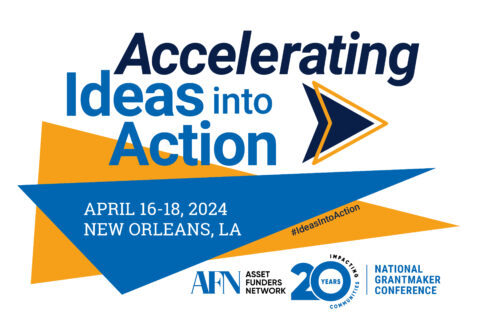Partner Event: The Financial Clinic presents Nexus of Work & Wealth
Event recap courtesy The Financial Clinic Impact NOW – Final Thoughts During the closing panel of Impact NOW, Leah Mayor from Asset Funders Network explained that in order to create sustainable change, we must first understand what it is that drives change. On Friday March 16th, the Clinic was thrilled to host Impact NOW, a free professional development opportunity where financial security and workforce development practitioners came together to discuss everything from personal finance, to the nexus of work and wealth (with delicious, fresh baked goods thanks to Ovenly!). Many interesting and thought-provoking conversations were started over the course of the day, filled with shared learning of skills and insights: (1) The day started with Harold Pollock and Helaine Olen’s keynote address where they gave us a glimpse into their celebrated book, The Index Card: Why Personal Finance Doesn’t Have to be Complicated. They broke down the essentials of personal finance, including these infamous credit myths:
- Your credit score is not a reflection of your character. It’s simply a reflection of having debt and how you’ve paid your bills.
- Credit cards aren’t inherently evil; however, it is important to be wary of any opportunity where someone else is helping you finance something – for example, paying for a gym membership upfront at $150 a year vs. $20 a month means you’ll actually be paying $90 in “interest” over the course of 12 months.
- Reward cards are great if you can pay off your bill in full each month, but we are more likely to spend more in order to get that reward.
(2) Breakout sessions lead by NYATEP, Support Center, and WPTI joined forces with Clinic staff to lead inspiring breakout workshops. Attendees discussed how to implement financial security programs at their organizations, how to optimize their financial security building work for increased buy-in, and what opportunities exist to collaborate on systems change. Tip: If you missed our workshops but want to learn more, register for our free virtual presentation on May 15 – How to Apply Financial Coaching Principles to Your Workforce Development Program (3) Finally, the day closed with a panel discussion, moderated by Ken Adams, Dean of Workforce & Economic Development at Bronx Community College, discussing the nexus of work and wealth for workforce development programs, employers, and funders. Thank you to Tara Colton of Seedco, Leah Mayor of Asset Funders Network, Agatha Kulaga of Ovenly, and Alex Visher of JUST Capital for participating in the lively and thoughtful discussion. If you were unable to attend the event, head over to The Financial Clinic Facebook page for livestreams of both the keynote with Harold and Helaine, and the Closing Panel!
The Financial Clinic cordially invites you to the Impact NOW (New Opportunities for Workforce) panel discussion to discover the true nexus of opportunity for building financial security through employment, from the perspective of workforce development programs, their employer partners, and funders.
DETAILS:
March 16, 2018 | 11am – 12:30pm Legal Outreach, Inc., 36-14 35th Street, Long Island City, NY (just 2 stops from Manhattan)
SPEAKERS:
The Financial Clinic is thrilled to welcome Ken Adams, Dean of Workforce & Economic Development at Bronx Community College as our Moderator, who will lead an enticing conversation with panelists:
- Tara Colton, Executive Director of Seedco
- Agatha Kulaga, Founder & COO of Ovenly
- Leah Mayor, East Coast Program Officer of Asset Funders Network, and
- More to be announced soon!
The panel discussion will seek to answer field-wide questions including:
- How can workforce development programs engage employers in financial security building of jobseekers for high quality job placement?
- How are employers engaging in financial well-being in the workplace, and should these practices be universal?
- What does success look like when workforce programs and employers partner on financial security in the workplace?
- What can funders do to make the most impact with these collective efforts? What lessons has philanthropy learned so far?
We hope to see you there!



